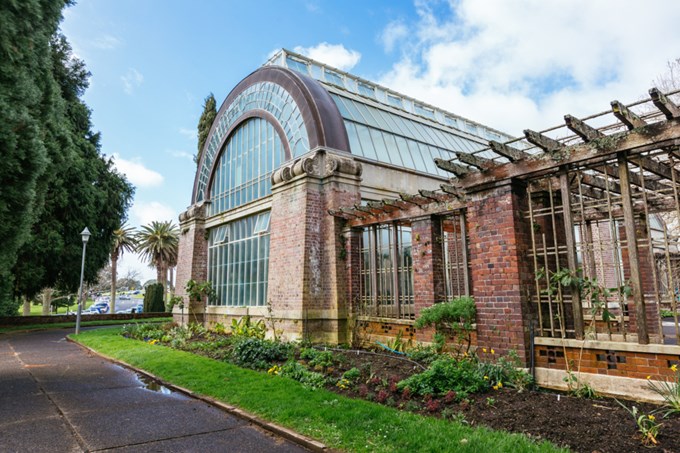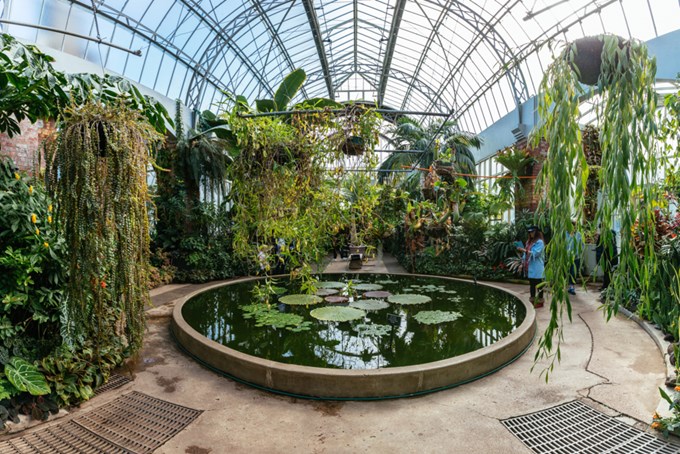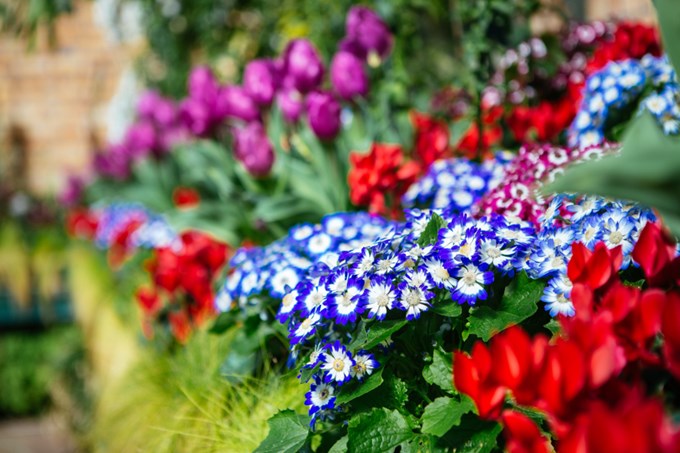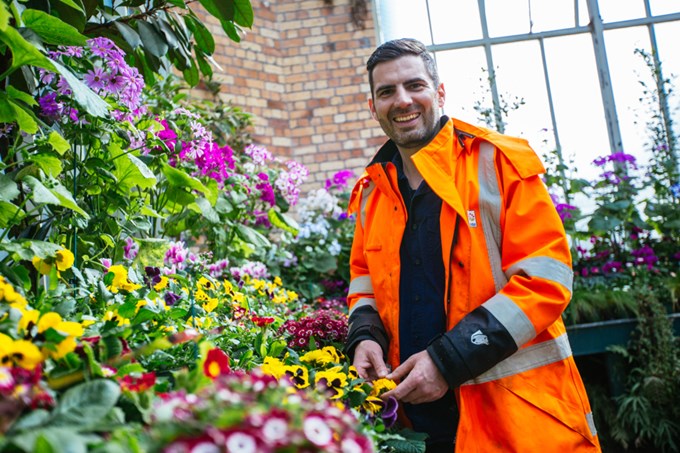The team at Auckland Domain’s popular Wintergardens is busy preparing for the coming spring months.
Major changes to the collection are not expected as the Wintergardens nursery is undergoing a makeover and there are still plenty of exciting displays to look forward to.
At the Temperate House:
Head there now for a cactus/succulent display. The first orchids of the season have just been planted while tulips have started flowering.
At the end of spring, you will find lilies, snapdragons, stocks and peonies. Summer brings roses, gladiolus, fuchsia and begonias while autumn will feature New Zealand’s biggest collection of chrysanthemums.
At the Tropical House:
There will be a display of orchids and plenty of other tropical plants that are thriving year-round to look out for. Banana trees flower all year around too, while early summer may bring some mango fruit.
What you can do at home
If you are looking for ways to be environmentally friendly in the garden, here are some sustainable gardening tips to get you started:
Re-using resources:
- Make your own compost in your garden to recycle all the organic detritus from cooking, food and gardening. To avoid rats and mice, avoid including meat and use composter bins that you can close. Add the compost to your soil when it’s ready, it’ll be a source of nutrition for when you plant your plants.
- Collect rainwater in an adapted water-collection tank and then use this water during the dry period of the year.
Timing:
- Plant new plants during the autumn/winter period to minimise their watering needs and increase your chances of success.
- Water your garden in the evening or early morning to allow the water to penetrate the soil properly as water won’t evaporate in cooler temperatures and plants are open to feed.
- Remove weeds regularly by hand or with manual tools to make the job easier and avoid using chemicals.
General garden tips:
- Use endemic plants, they will be perfectly adapted to their environment/weather/soil and stronger to disease and will require less care.
- Use mulch around your plants to retain the moisture and reduce the weeds.
- Use organic fertiliser like sheep pellets that will release plant food for a longer period, increase the bacteria’s lifespan and make the soil healthier.
- Use a tougher type of grass and don’t mow the lawn too short to reduce the proliferation of moss/weeds.
- Use natural pest control/disease products to fight unwanted insects or disease.
- Allow for wild spaces; avoid having a monoculture.
Planting for bees:
- Use trees/plants/flowers that attract bees and other beneficial insects, for example, sunflowers, salvias, petunia, eggplants and capsicum varieties. Varieties of Agastache are highly recommended for attracting and feeding bees.
- Build bug hotels – these are great projects for children.
- The more flowering plants the better it is, especially those with umbel type inflorescence.





